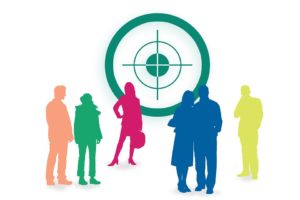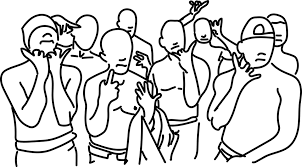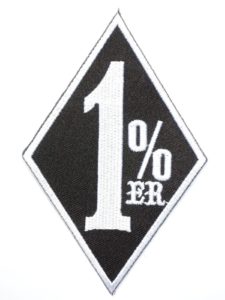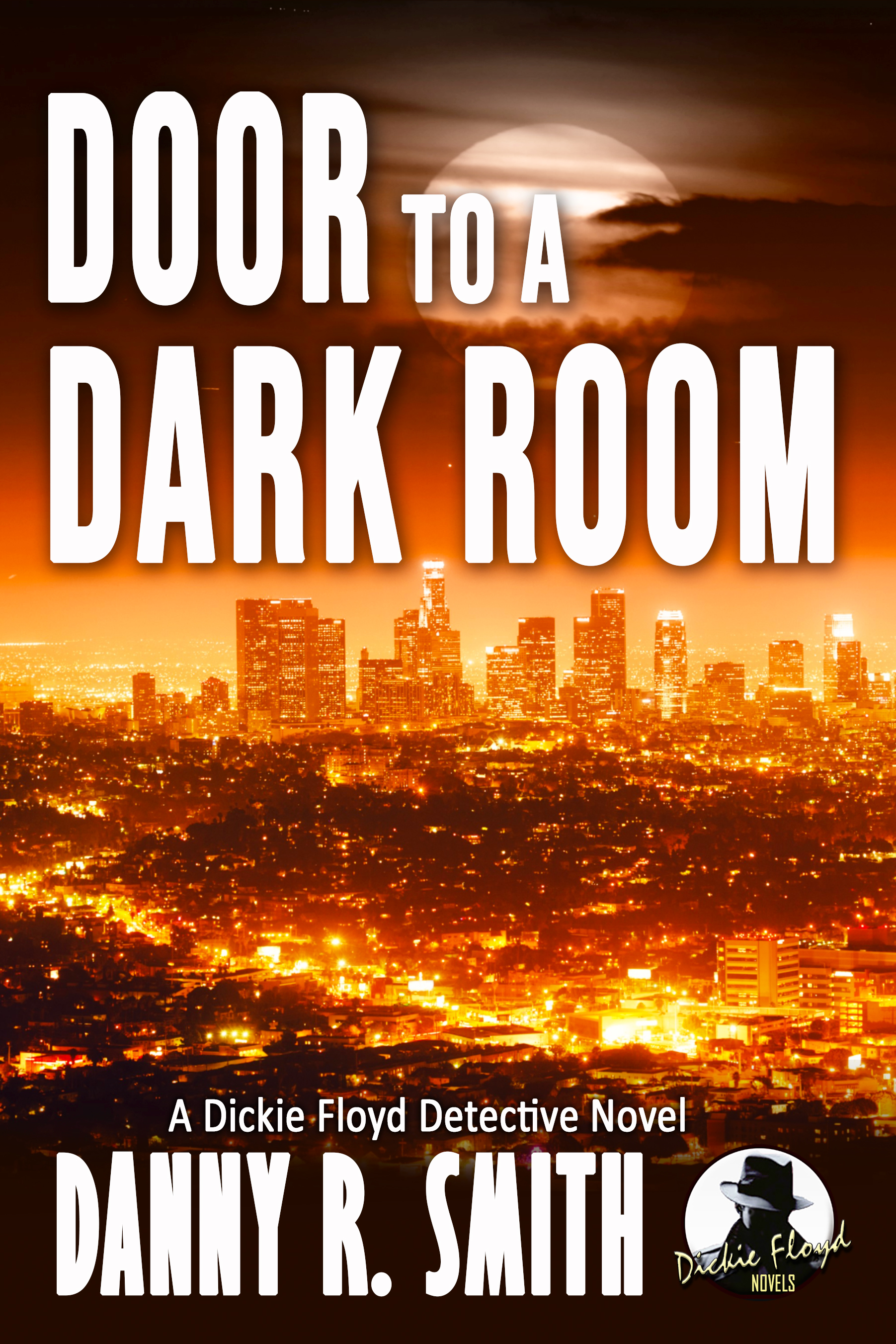Profiling is an effective tool for detecting and preventing crime and apprehending criminals.
 Courts and the officers thereof have succumbed to (if not created and propagated) this notion that those who are entrusted—rather burdened—to protect society from the predators among us, are expected to act as if they have neither a brain nor a day’s experience.
Courts and the officers thereof have succumbed to (if not created and propagated) this notion that those who are entrusted—rather burdened—to protect society from the predators among us, are expected to act as if they have neither a brain nor a day’s experience.
Reasonable people would ask why we spend so much time and money to train these men and women if they are unable to use their training and the resulting experience to fight crime. Shall we issue them blinders?
Are Blacks and Hispanics Unfairly Targeted by Cops?
 Allow me to point out the obvious: In black and Hispanic neighborhoods, the cops are primarily encountering, interacting with, and yes, arresting blacks and Hispanics. But only a very small percentage of the citizens in those communities have negative contact with the police.
Allow me to point out the obvious: In black and Hispanic neighborhoods, the cops are primarily encountering, interacting with, and yes, arresting blacks and Hispanics. But only a very small percentage of the citizens in those communities have negative contact with the police.
Most contacts between the cops and citizens are the result of the police being summoned to resolve a problem. In the predominately black and Hispanic communities, the situation usually involves one person of color reporting a problem they are having with another person of color.
When confronted with the statement heard by every cop, “You just stopped me because I’m black,” I would often look around and ask, “You see any white people around here I can stop?”
In an eight-hour shift, I would literally drive past and perhaps make eye contact with hundreds of blacks and Hispanics. The vast majority of them would not garner an ounce of my attention or a second thought.
 However, when men wearing particular styles or colors of clothing, in manners consistent with that of gang culture, and when tattoos were visible on their necks and faces that hinted at gang affiliation, I would oftentimes contact those individuals. That was my job. These were the people making it unsafe for women and children (mostly of color) to leave their homes.
However, when men wearing particular styles or colors of clothing, in manners consistent with that of gang culture, and when tattoos were visible on their necks and faces that hinted at gang affiliation, I would oftentimes contact those individuals. That was my job. These were the people making it unsafe for women and children (mostly of color) to leave their homes.
An Example of Profiling
I stopped a man in an alley late one night. He wore dark clothing and had a hoodie covering his head. I detained him due to high theft in the area. The whole area. Los Angeles. He consented to a search. He was clean; there were no burglary tools, narcotics, drug paraphernalia, or weapons found on him. The man was calm, polite, and cooperative. I asked why he was traveling in the dark alleys, dressed in dark clothing. His response will never leave my memory: “Fools be shooting you on the street, man.”
 How could I argue with that? So, I thanked him for his time, and he thanked me for my professionalism, and we went our separate ways.
How could I argue with that? So, I thanked him for his time, and he thanked me for my professionalism, and we went our separate ways.
Was I right to stop the man? Every cop would say I was. Most residents would agree. The ACLU and most criminals would say otherwise. After all, I profiled him. Not by the color of his skin (I couldn’t see his skin when I drove up behind him), but by his being in a dark alley wearing dark clothes and concealing his head with a hoodie in a high-crime area. I was doing my job.
Profiling White People
 Where I worked, an unusually high percentage of white people were stopped when found driving through the back streets of our jurisdiction. There was a good chance they were either lost or they were there to buy dope. Those who were lost were often directed and sometimes escorted out of the area; the others would oftentimes be off to the pokey.
Where I worked, an unusually high percentage of white people were stopped when found driving through the back streets of our jurisdiction. There was a good chance they were either lost or they were there to buy dope. Those who were lost were often directed and sometimes escorted out of the area; the others would oftentimes be off to the pokey.

When the carnival came to town, our booking cage would be filled with many of the traveling workers who were easily identifiable as junkies. My first training officer arrested a ride operator for being under the influence of heroin, and he wanted to charge him with child endangerment, listing the kids who had been on the ride as victims. The watch commander wouldn’t approve the latter charge, only the misdemeanor narcotics violation.
Profiling Locations
We’d profile people stopping at known dope houses. We’d profile large groups of boys gathered in the dark corners of parks, having driven past scores of other boys with soccer balls or basketballs. We knew which group would include those who were likely to be in possession of guns and dope, and it had nothing to do with race. If there was going to be trouble, we knew which group would be starting it.
 Cops can quickly and accurately identify convicts, gangsters, prostitutes, and junkies at a glance. They do so by profiling, and race has nothing to do with it.
Cops can quickly and accurately identify convicts, gangsters, prostitutes, and junkies at a glance. They do so by profiling, and race has nothing to do with it.
Profiling Bikers
 Most people can identify a biker when they see one. But if you are not familiar with the world of motorcycle enthusiasts, you might mistakenly profile a law-abiding citizen as an outlaw.
Most people can identify a biker when they see one. But if you are not familiar with the world of motorcycle enthusiasts, you might mistakenly profile a law-abiding citizen as an outlaw.
The term “one percenter” has been embraced by outlaw bikers for half a century. Many outlaw clubs have a “1%” patch on their vests and jackets. It started after a statement was made by a spokesperson for the American Motorcyclist Association stating that 99% of all bikers are law-abiding citizens. This was in response to an outbreak of violence at a biker rally occurring in Hollister, California. The year was 1947.
Cops know the difference between outlaw bikers and biker enthusiasts by identifying their patches or tattoos and understanding their culture. Profiling.
What’s the Point?
The point is that good cops are able to tell the difference between citizens and criminals, gangsters and hip-hoppers, outlaw bikers and motorcycle enthusiasts. And they do so with a great degree of accuracy.
So profiling might now be a dirty word, but I can assure you that most cops will continue to instinctively use their experience to identify and apprehend those who pose threats to a civil society.
We should all be grateful that they will.
* * *
A GOOD BUNCH OF MEN
 DOOR TO A DARK ROOM
DOOR TO A DARK ROOM
 ECHO KILLERS
ECHO KILLERS

I remember when we started having to categorize traffic stops and citations. They were broken down by race and sex and we had to put the reason for the stop. It turned out the breakdown on the citations fell almost exactly along the racial breakdown of the state. We (Florida Highway Patrol) started that about 2000 if not earlier well before there was a requirement that all law enforcement agencies in the state had to do it.
There was a Trooper, Bob Vogel in Volusia County (Daytona Beach area), who developed a profile of the average drug courier and used it to great success. There was even a story on 60 Minutes about him. Of course the ACLU shot it down. The average drug courier drove a rented vehicle, stayed within a couple of miles of the speed limit, drove in the right lane, had several air fresheners in the car, I forget what all else he used. Nothing racial about it just the habits. He later was Sheriff of Volusia County. He used to do drug interdiction checkpoints on I-95, a major drug corridor (as was the Turnpike). He would put a sign on I-95 saying there was a drug interdiction checkpoint ahead. Of course the couriers would make a U-turn across the median and there would be deputies waiting to stop them for making an illegal U-turn. Lots of success to it until the ACLU had him stopped.
Great comment, Sandy. Interesting and informative. No surprise about our friends at the ACLU. 🙁
Great, glad to hear you’re going to write about some of your cases. Love your novels, but I’m sure your experiences will be very compelling. Thanks again
I’ve got one that will be a blockbuster. Incredible, tragic story. That’s first up and I’ve started outlining it now. It’s kind of like that project in the garage where I tinker with it when I’m not working on my novels, blogs, and business. lol. You know, in ALL my spare time! lol
Hi Danny, I agree with you on racial profiling. I remember watching a daytime talk show, some years back, and the panel consisted of young black boys and a black businessman. The boys were wearing what was jeans around their hips with their underwear showing. They were complaining about how “they bein scriminated aginst”. The black man spoke up and informed the boys that the reason why they were being discriminated against was because of the way they dressed and spoke. He told them that if they wanted respect that they had to dress, talk and act like they wanted to be respected instead of being discriminated against.
I never forgot that one program because her was a man of the same race telling them what was wrong with the younger generation of that time. I firmly believe that it still applies for today’s generation.
Thank you for your years of dedication.
Wanda
All I would add to that, Wanda, is that it goes for all people of all races. Thank you.
Hi Danny,
I totally agree with you on profiling. It is a shame it has been twisted against law enforcement. Media seldom print or say both sides of a story only what will sell or get viewers. Sensationalism seems to be popular even with the better networks.
Do you remember Frank Reynolds of ABC News many years ago? I will never forget him saying on the air, “Get it right people. We only put the truth on air.” How times have changed!
Keep up the good work.
Denise Sparks
Thank you, Denise!
Thank you, Denise. Great comment.
I know you’re busy but I wish you would consider a podcast and tell your stories as on your blog. True crime is huge on podcasts, but few if any writers/former police are available. I think it would be well received. Thanks for your time.
I appreciate you saying so. I have considered it but yes, it comes down to time. I still run my PI business though I hope to retire from it in the next few years. Meanwhile, it’s a real challenge to write all that I do and keep up with everything else. I actually want (and plan to) write true crime stories, starting with a couple of very interesting cases I had. But for now I’m committed to the series and am finishing up book 4 as we speak.
AMEN!
Did you ever think you’d live in a society that criticizes and punishes people for doing their job? I don’t know where our country is headed but I’m glad I’m an old man living on a dirt road far from “civilized society”. And I’m grateful for finding a writer whose stories are well told and grounded in good common sense. I once had a teacher who said he didn’t believe in common sense and I told him he acted like it. Needless to say my grade reflected my opinion. Thanks for your work.
Thank you, Doug. I appreciate the feedback and your sentiments. Danny